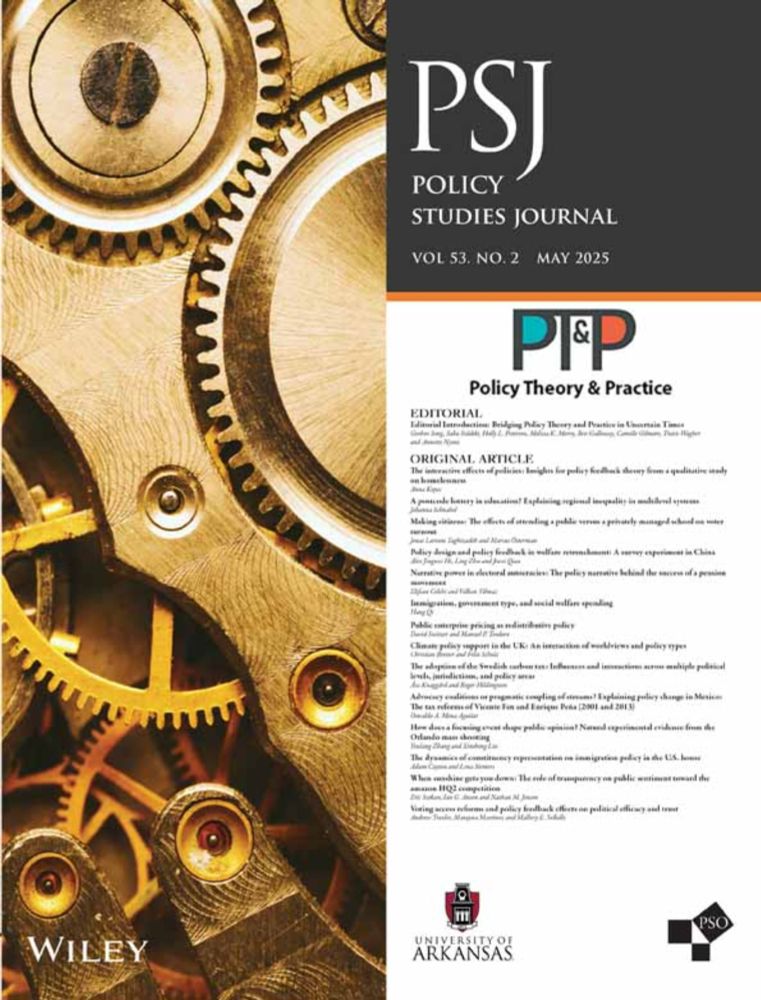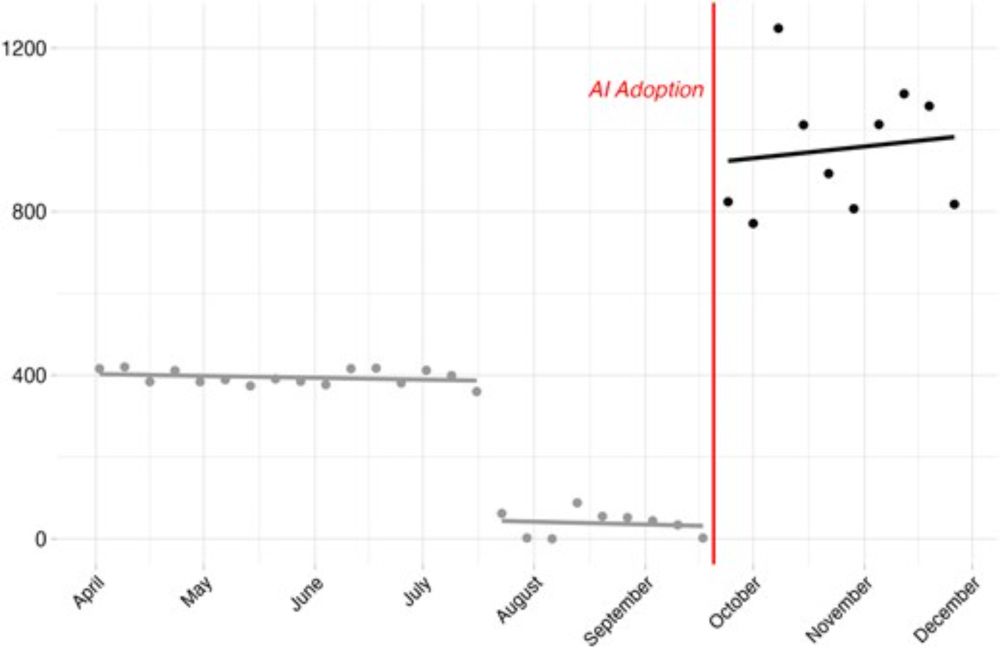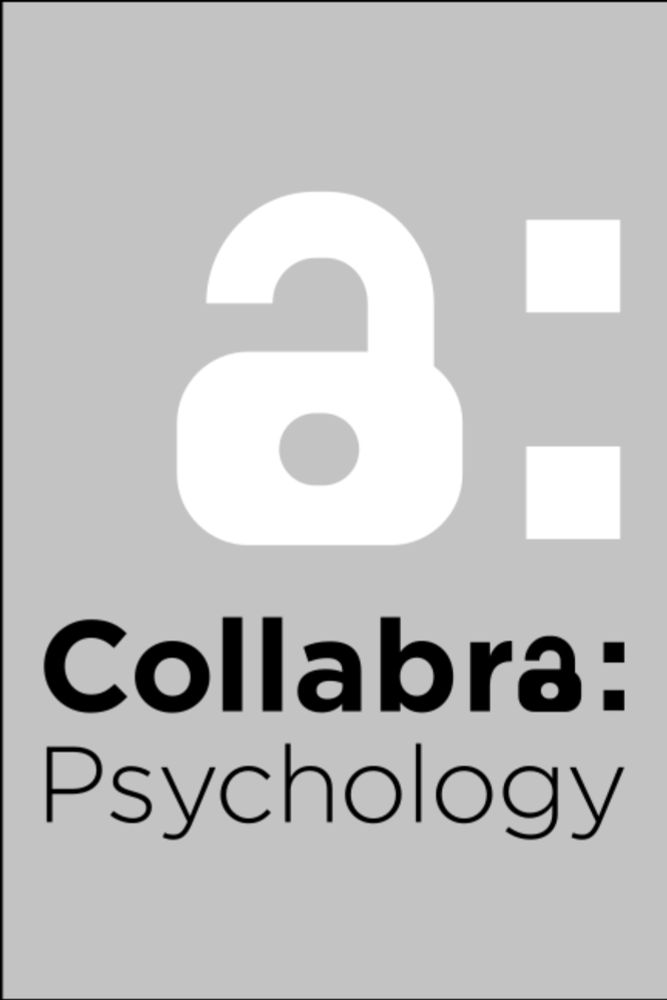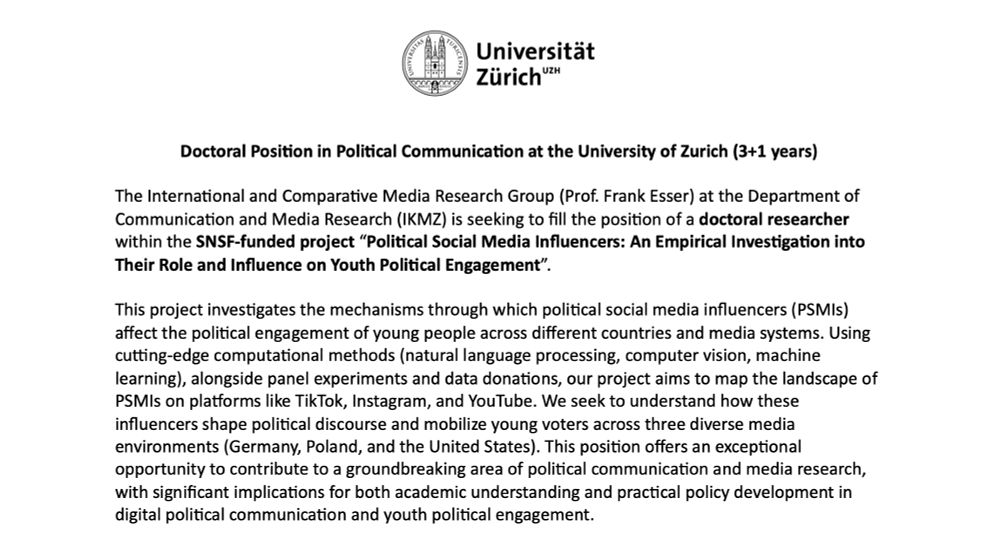Morgan Wack
@morganwack.bsky.social
490 followers
990 following
8 posts
PostDoc at UZH. Formerly Clemson & UW. Technology & democracy, political misinformation, African politics, and LFC.
Posts
Media
Videos
Starter Packs
Reposted by Morgan Wack
Kate Starbird
@katestarbird.bsky.social
· Jul 11

<em>Policy Studies Journal</em> | PSO Public Policy Journal | Wiley Online Library
Can state election policies affect the spread of misinformation? This paper studies the role played by ballot processing policies, which determine when ballots can be examined and organized, in the o...
onlinelibrary.wiley.com
Morgan Wack
@morganwack.bsky.social
· Jul 11
Kate Starbird
@katestarbird.bsky.social
· Jul 11

<em>Policy Studies Journal</em> | PSO Public Policy Journal | Wiley Online Library
Can state election policies affect the spread of misinformation? This paper studies the role played by ballot processing policies, which determine when ballots can be examined and organized, in the o...
onlinelibrary.wiley.com
Reposted by Morgan Wack
Kate Starbird
@katestarbird.bsky.social
· Jul 11

<em>Policy Studies Journal</em> | PSO Public Policy Journal | Wiley Online Library
Can state election policies affect the spread of misinformation? This paper studies the role played by ballot processing policies, which determine when ballots can be examined and organized, in the o...
onlinelibrary.wiley.com
Reposted by Morgan Wack
Joey Schafer
@schafer.bsky.social
· Jul 11
Kate Starbird
@katestarbird.bsky.social
· Jul 11

<em>Policy Studies Journal</em> | PSO Public Policy Journal | Wiley Online Library
Can state election policies affect the spread of misinformation? This paper studies the role played by ballot processing policies, which determine when ballots can be examined and organized, in the o...
onlinelibrary.wiley.com
Reposted by Morgan Wack
Reposted by Morgan Wack
Reposted by Morgan Wack
Morgan Wack
@morganwack.bsky.social
· Apr 1

Generative propaganda: Evidence of AI’s impact from a state-backed disinformation campaign
Abstract. Can AI bolster state-backed propaganda campaigns, in practice? Growing use of AI and large language models has drawn attention to the potential f
academic.oup.com
Morgan Wack
@morganwack.bsky.social
· Apr 1
Morgan Wack
@morganwack.bsky.social
· Apr 1
Morgan Wack
@morganwack.bsky.social
· Apr 1
Morgan Wack
@morganwack.bsky.social
· Apr 1
Morgan Wack
@morganwack.bsky.social
· Apr 1
Reposted by Morgan Wack
Reposted by Morgan Wack
Reposted by Morgan Wack
Reposted by Morgan Wack
Reposted by Morgan Wack
Kate Starbird
@katestarbird.bsky.social
· Oct 22

I’ve been studying misinformation for a decade — here are the rumours to watch out for on US election day
We can anticipate many false claims, including alleged mass voting by non-citizens or ‘suspicious vans’ outside polling booths. We should quickly counter them.
www.nature.com
Reposted by Morgan Wack
Maddy Jalbert
@maddyjalbert.bsky.social
· Oct 19

An Illusory Consensus Effect: The Mere Repetition of Information Increases Estimates That Others Would Believe or Already Know It
How do people estimate the prevalence of beliefs and knowledge among others? Here, we examine the hypothesis that mere repetition of information increases such perceptions of consensus — an “illusory ...
online.ucpress.edu











